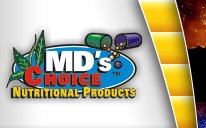Trace Elements
![]()
| Nickle |
Physiological Role
A second microbial function of Ni may be important to ruminants
Ni may have a biological role that interacts with vitamin B-12
Ni may play a role in lipid metabolism
Metabolism and Homeostatic Control
Nickel Requirements
Sources of Ni
Deficiency Signs
Toxicity
- Ni meets criteria for essentiality
- Nonspecific activator of enzymes
- Ni can replace the natural metals in numerous enzymes in vitro
- Ni containing enzymes have been identified in plants and microorganisms but no enzyme in animals has been shown to be activated specifically by Ni
- Ni may be specific for ruminal bacterial urease
- Spears et al (1977) reported bacterial urease activity was much lower in lambs fed only 60 ppm rather than 5 ppm Ni
- Urease appears to be a Ni metalloenzyme
- Largest responses to Ni supplementation in ruminants occur when diets high in concentrate but low in protein are fed
- When dietary N is low, Ni may function to enhance recycling of N to the rumen by increasing ruminal urease activity
- Ureolytic bacteria adhere to the rumen epithelium surface and produce urease which may facilitate transfer of ureaN from the blood across the rumen wall
II. A second microbial function of Ni may be important to ruminants
- Ni is a component of factor F430 which is present in methanogenic bacteria. At least one species of methanogenic bacteria requires Ni for growth
- Addition of Ni to in vitro cultures stimulates methanogenesis
III. Ni may have a biological role that interacts with vitamin B-12
(J. Trace Elem. Exp. Med. 2:21, 1989) and folic acid (Biol. Trace Elem. Res. 52:23, 1996)
IV. Ni may play a role in lipid metabolism
- Regulation of lipid content in tissues
- Synthesis of phospholipids (J. Nutr. 126:2466, 1996)
V. Metabolism and Homeostatic Control
- The major excretory route for oral Ni is the feces
- Absorption of dietary Ni is in the range of 1-10%
- Fecal excretion increases with increasing intake
- Urine is the primary excretory route for intravenously administered Ni
- Tissue concentrations of Ni are maintained at fairly constant levels until homeostatic controls are exceeded (> 250 ppm Ni in calf diets)
- Most nonruminant animals have a Ni requirement of < 200 ug/kg of diet
- Ruminants may have higher Ni requirements than other animal species that have been studied
- Ni deficiency has been observed with diets containing 100 ppb
- Ni requirement of young ruminants is approximately 1 ppm
- Ni is ubiquitous and selection of low Ni feeds is difficult
- Ni in plants is influenced by a number of factors
- Legumes are generally higher than grasses
- Ni decreases with advancing maturity
- Concentration and availability in the soil
(Nelson suggests earlier reported signs listed below may have been misinterpreted manifestations of pharmacologic actions of Ni)
- Chick
- Pigmentation changes and dermatitis in shank skin
- Leg abnormalities
- Reduced length: width ratio of tibia
- Slight thickening of long bones
- Selling of hock joint
- Swine
- Decreased growth rate
- Delayed estrus
- Increased neonatal mortality
- Scaly, entrusted skin similar to parakeratosis
- Ruminants
- Reduced ruminal urease activity
- Skin dermatitis
- Decreased growth rate
- Increased mortality
- Contact with skin can cause dermatitis
- Toxicity to domestic animals in relation to requirement is low
- 250 ppm caused slight growth depression in calves but had no adverse effects on milk production, milk composition, or health of cows
- 700 ppm caused growth depression in chicks
- Toxicity threshold may be < 600 ug/day in sensitive human subjects (J Nutr. 126:2452S, 1996)
- Conventional diets usually provide, 150 UG/DAY
- Diets high in chocolate, nuts, dried beans and peas, and grains could provide 900 ug/day
![]()
Trace Elements

For individual consultation or questions about our products, call
1-800-628-0997
Click Here for a Printable Version of This Page
